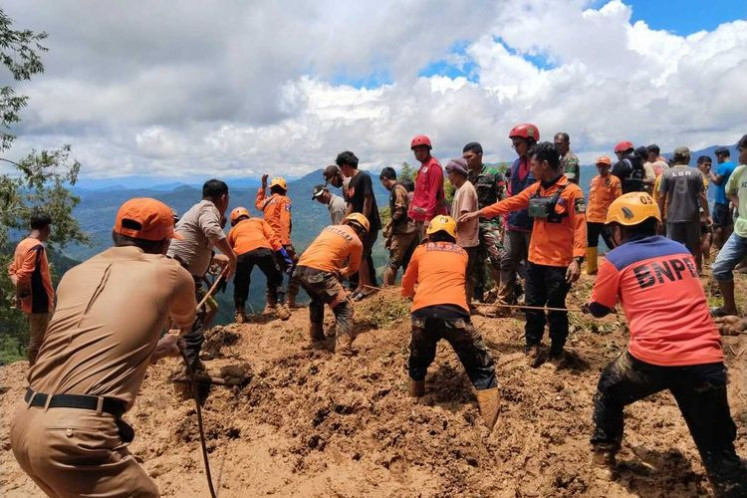Technological parenting 101: Where do we start?
Google search results for online child exploitation became too stomach churning, so I stopped clicking.
Change Size
 Parents in the tech-heavy community of Silicon Valley are severely restricting or outright banning screen time for their children. (Shutterstock/Mesk Photography)
Parents in the tech-heavy community of Silicon Valley are severely restricting or outright banning screen time for their children. (Shutterstock/Mesk Photography)
P
rominent amongst the arguments I had with my parents whilst growing up was their TV policy. Television was off limits after certain hours, although it was the only viable public entertainment 1980s technology was capable of delivering. Their basic reasoning was that TV was bad for children, putting a limit on watching TV was necessary to keep them from harm.
This so-called harm was vague at best — unless you counted the dashing detective Remington Steele or the ill-costumed American veterans bonding as the A-Team as a threat to juvenile development. As was common among other teens of that era, I appealed and revolted against this injustice.
My parents responded with counterarguments and occasionally, also punishment, and thus the small lesson on parenting I gained was of this weird dance of avoidance and verbal disputes around rules.
Now I blame tough luck and bad karma for my own parenting dilemma. With teenagers and young children at home, where does one draw the line on technology and social media to save them from harm?
In our current era, “harm” can be defined as the 1,022 children the Indonesian Child Protection Commission (KPAI) reported as having fallen prey to online sexual exploitation from 2011 to 2015. A particular modus operandi seems to involve youngsters using Facebook to engage with peers or adults, only to be kidnapped/robbed/raped/tortured or in the worst cases, murdered.
Lest you think this trend is unique to the developing world with its ambiguous advancements in modern technology, similarly horrible records have appeared around the globe.
The Japanese police reported more than 1,800 cases of minors falling victim to crimes on social media in 2017, including child pornography and child prostitution. Police in England and Wales logged similar reports in 2016, including a 1-year-old child as the youngest victim of pedophilia. Most of these perversities were committed through smartphones.
Google search results for online child exploitation became too stomach churning, so I stopped clicking. But even if other similarly widespread cases of bullying, radicalization, hoaxes and financial scams are excluded, the internet is clearly a menace to minors.
The steps for prevention are severely inadequate. To subscribe to Facebook, a potential user must be at least 13. However, as is the case with other sharing platforms like Twitter, Instagram, WhatsApp, Skype, YouTube, WeChat and Line, enforcement is rare or literally non-existent.
Elementary school teachers that interact directly with children online tend to easily befriend students who are younger than the age limit, and such children are hence more vulnerable to online harassment. These teachers are apparently oblivious to the platforms’ age restrictions.
Negligence in such basics of social media use could be an indication that educators, too, are alien to internet practices (and perils); a grave irony since even first-graders have been using information technology for several years. This a grave misconception of internet literacy: if educators don’t get it, what about those under their care?
Many other schools approach the issue by banning smartphones on school premises. This, too, is not without its problems, as students are reliant on technological features, such as Go-Jek for convenient transport, WhatsApp for easy communication among parents and teachers alike, and so on. Smartphone bans would sacrifice these tech comforts.
An interesting experiment is currently unfolding in California. Parents in the tech-heavy community of Silicon Valley are severely restricting or outright banning screen time for their children. Reports say that even babysitters and nannies are commonly required to sign agreements against using their smartphones while caring for their charges.
The people who created the technology are thus acknowledging how hazardous their creations are to minors. There may have been a span of several decades, but this particular strategy strongly reminds me of my parents’ TV policy.
Except of course, zero screen time is, again, far more problematic. For one, not all households can afford smartphone “police nannies”; not all parents work for technology companies. More importantly, however, while exposure and thus risk may be reduced by barring smartphones, how do we cope without the conveniences of these technologies?
So far, few people seem to grasp the problem. But if the intersection of technology and parenting is confusing even for tech creators, it will be more so for society. Which is why parents like us need immediate help in navigating technology use — as do the educators entrusted with tending to our children at school.
Some may point fingers at tech companies: they created the problem; they should resolve it. After all, they benefited the most, at least financially. This is a convenient, if futile, narrative. As shown by the age restriction issue, Facebook and Twitter, et al., are not in it to deal with it.
The age cap issue is a simple example that technological literacy is beyond tech companies. It takes nearly a lifetime to be literate in meaning and context through nurturing critical thinking and common sense; which is why mandatory education takes years to complete.
Developing tech literacy cannot be very different. Both families and schools need to be the backbone of such an ambitious task. It will certainly help if teachers and parents are knowledgeable on the subject so they can impart insights to the younger generation. The entire process reeks of investment, educational as well as social.
This is why the government needs to shoulder the responsibility. Laws, funding, campaigns, training and efforts all need to be far-reaching. If technology inevitably plays a more vital part in our lives, technological parenting should be a priority. This should have started with my parents and their TV restriction more than three decades ago. We are late for sure. That means starting now is a good idea.
***
The writer is a mother of three and works for CNN Indonesia.









